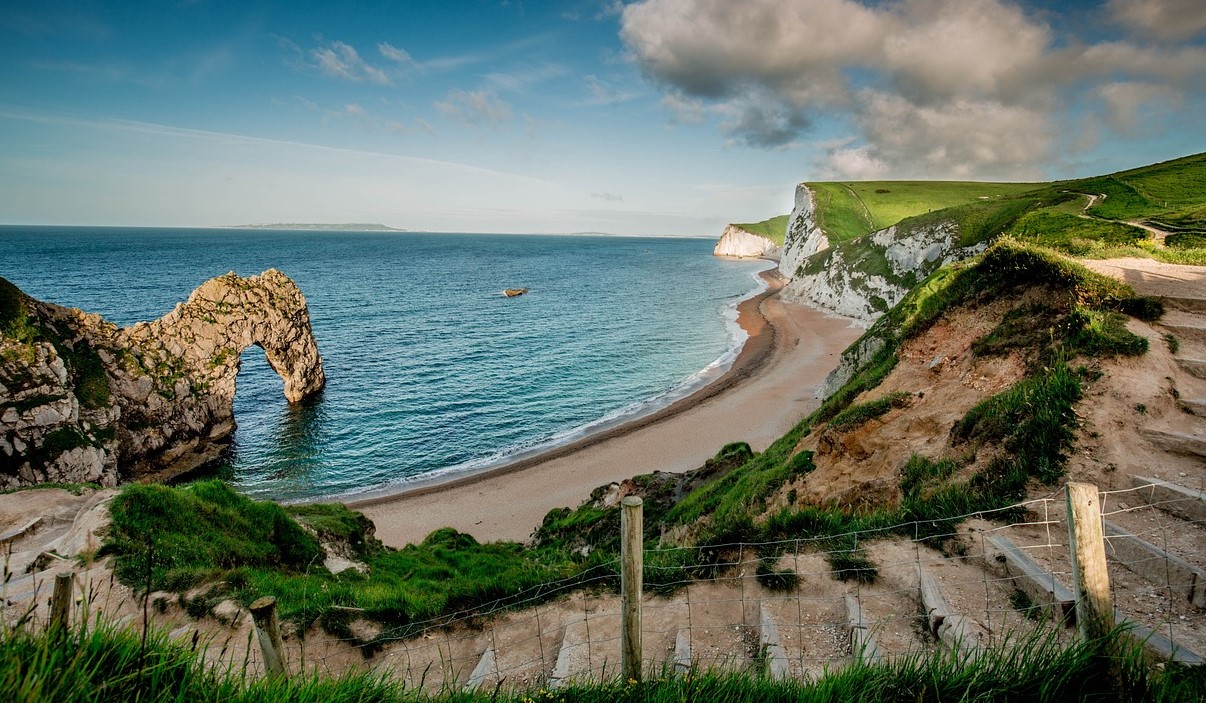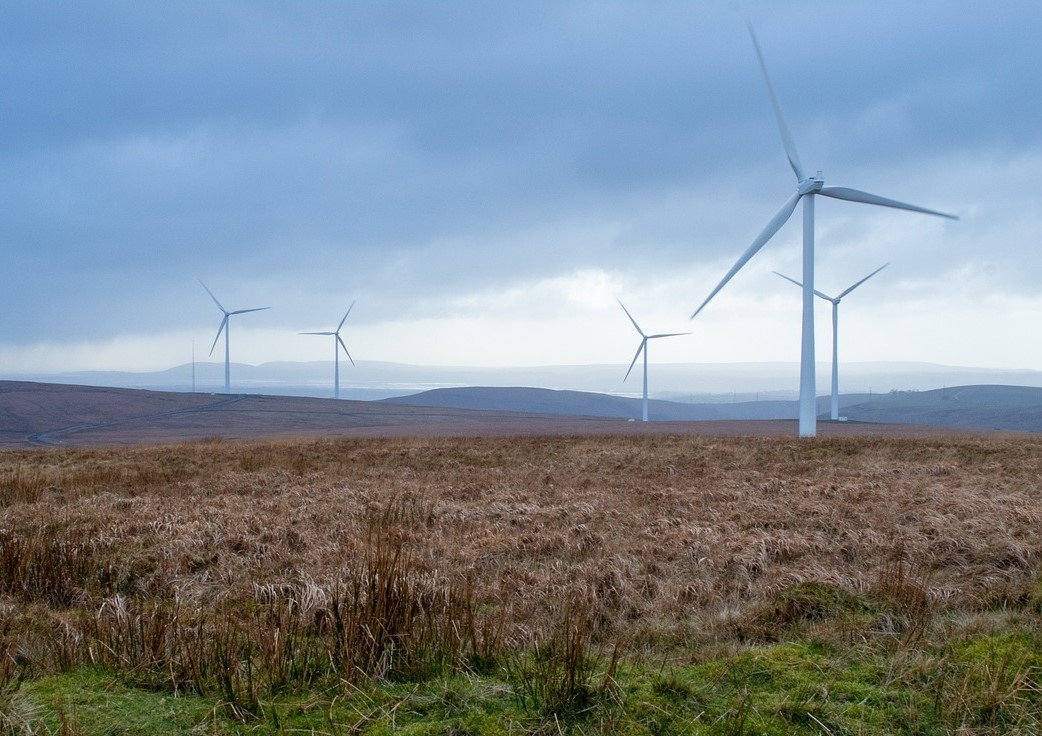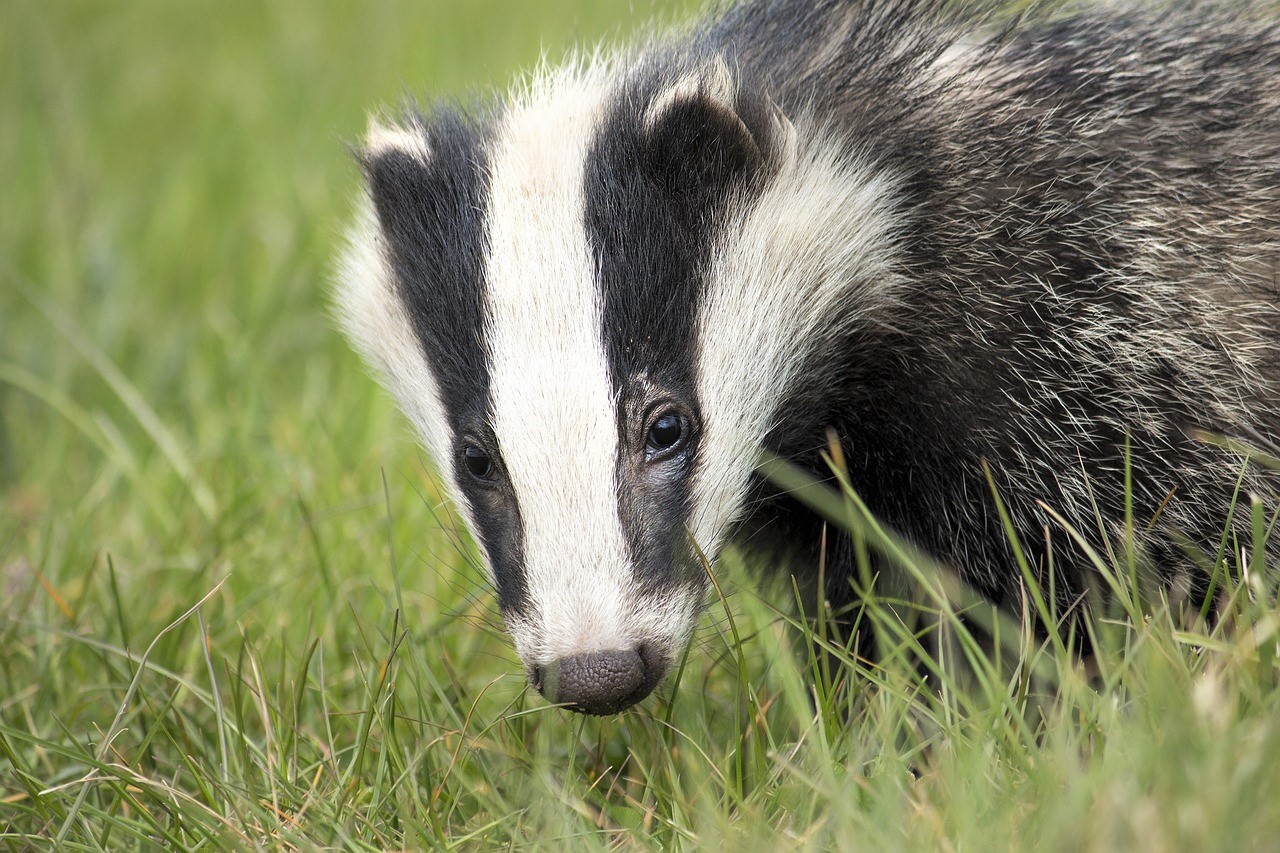Environmental Education in the UK
There is a long history of environmental education in the UK. A large number of organisations have made significant contributions in this field, providing teachers with a wealth of resources and ideas to inspire and engage their pupils.

Environmental Problems in the UK
The United Kingdom, like many other countries, faces a range of climate change and environmental challenges. However, it has also been a leader in some respects, such as its commitment to achieve net-zero greenhouse gas emissions by 2050. Below is an overview of some of the key problems and potential solutions:
- Emissions from Transportation: The UK has a heavy reliance on cars and other forms of transport that emit CO2 and other greenhouse gases.
- Industrial Pollution: Various industries, including manufacturing and energy production, contribute to air and water pollution.
- Energy Consumption: Despite efforts to switch to renewable energy, much of the UK's energy still comes from fossil fuels.
- Deforestation: While not as significant as in some other countries, deforestation and loss of biodiversity are still concerns.
- Waste Management: Plastic waste, electronic waste, and general waste are environmental issues that require attention.
- Agricultural Emissions: Farming, particularly livestock farming, contributes to methane emissions.
- Overfishing: The UK's waters have experienced overfishing, impacting marine biodiversity.
- Flood Risk: Climate change exacerbates flooding risks, particularly in coastal and low-lying areas.
- Air Quality: In many urban areas, air pollution levels are above recommended limits.
- Public Awareness and Policy Inertia: Sometimes there's a lack of political will or public awareness to drive significant change.
Environmental Solutions in the UK
- Transition to Electric Vehicles (EVs): The UK has plans to ban the sale of new petrol and diesel cars by 2030, promoting a shift to electric vehicles.
- Renewable Energy: Continued investment in wind, solar, and other renewable sources of energy can help transition away from fossil fuels.
- Energy Efficiency: Encouraging the use of energy-efficient appliances, home insulation, and commercial building standards can reduce overall energy consumption.
- Reforestation and Conservation: Initiatives to plant more trees and conserve natural habitats can combat deforestation and loss of biodiversity.
- Waste Management: Promoting recycling, developing biodegradable materials, and investing in waste-to-energy technologies can manage waste more sustainably.
- Sustainable Agriculture: Methods such as rotational grazing, no-till farming, and organic farming can reduce agriculture's environmental impact.
- Fisheries Management: Implementing more sustainable fishing practices and policies can address overfishing.
- Flood Defenses and Planning: Investments in infrastructure can help to mitigate the risk of flooding.
- Air Quality Measures: Implementing low-emission zones and promoting public transport can improve air quality.
- Public Awareness and Education: Increasing the public's awareness about climate change and environmental sustainability can help in pushing for more aggressive policies.
- Global Cooperation: Climate change is a global issue, and the UK can contribute through international agreements, sharing technologies, and financial aid for climate adaptation and mitigation in less developed countries.
- Local Initiatives: Encouraging local governments to implement their own sustainability initiatives can also make a difference.
By comprehensively addressing these issues, the UK has the potential to significantly mitigate its environmental impact and adapt to the challenges posed by climate change.

Environmental Education in the UK: positive actions
Here are some of the positive actions in the field of environmental education in the UK:
- Incorporation into the National Curriculum: Environmental topics are often integrated into subjects like geography, science, and citizenship, allowing students to understand the interconnectedness of human actions and environmental outcomes.
- Outdoor Learning: Many schools in the UK adopt outdoor education programs that offer hands-on experiences with nature, aiding a deeper understanding of environmental issues.
- Digital and Online Resources: Websites, apps, and interactive modules on environmental issues are available for both teachers and students.
- Teaching Kits: Various organizations provide teaching kits that include lesson plans, activities, and informational resources geared towards educating young people about sustainability.
- Eco-Schools Programme: This international program, active in the UK, allows schools to win "Green Flags" for their environmental initiatives. It is designed to encourage whole-school action on sustainable development education issues.
- Student-Led Initiatives: University and school campuses often have environmental societies led by students, which undertake various sustainability projects, from tree-planting to campaigns to reduce single-use plastics.
- Collaboration with NGOs and Environmental Groups: Schools often partner with non-profit organizations to organize workshops, seminars, and field trips, offering students a chance to engage with environmental issues on a deeper level.
- Local Government Initiatives: Local governments often support schools in implementing environmental education through funding or educational programs.
- Teacher Training: There is an increasing focus on providing professional development for teachers to equip them with the skills and knowledge to teach environmental education effectively.
- Environmental Literacy in Higher Education: Some universities offer specialized courses or degrees in environmental science, policy, and sustainable development.
- Public Lectures and Seminars: Institutions often organize public lectures, seminars, and webinars to spread awareness about the environment, which is open for general attendance.
- Community Education Programs: Various programs target adult and community education in sustainability and environmental management.
- Government Grants and Funding: Schools and organizations can access various grants and funding opportunities to implement environmental education programs.
- National Strategies: The UK government often has broader strategies for sustainable development and climate change, of which education is a part.
By investing in these and other educational initiatives, the UK aims to develop a culture of environmental awareness and responsibility among its citizens. The effectiveness of these initiatives, of course, depends on consistent implementation, regular updating based on current environmental concerns, and a commitment to long-term sustainability.

Environmental Education Resources: UK
These resources provide lesson plans, activities, and information to help educators integrate environmental education in the UK into their curriculum.
The TES offers a vast collection of teaching resources on various subjects, including the environment. Teachers can download lesson plans, activity sheets, and presentations created by other educators and experts.
The Eden Project offers educational resources focused on interdependence, climate and weather, transformation, and resources. They provide lesson plans and activities designed to inspire and educate young people about the natural world. This program provides a framework to help schools become more sustainable. They offer resources like activity guides, lesson plans, and suggestions for school-wide projects that can lead to an Eco-School Green Flag award.
The RHS provides resources to help integrate gardening into the school curriculum, touching on subjects like science, mathematics, and history. They offer lesson plans, activity ideas, and even guides for setting up a school garden.
The World Wildlife Fund (WWF) provides a range of free teaching resources that include lesson plans, activity sheets, and videos that focus on topics like climate change, biodiversity, and sustainability.
Friends of the Earth offer various resources for teachers, including lesson plans, PowerPoint presentations, and educational videos on topics such as climate change, pollution, and biodiversity.
Oxfam provides a range of resources aimed at helping teachers educate about poverty, social justice, and sustainable development. Their lesson plans often have an environmental aspect, including topics like climate change and food sustainability. This association offers a plethora of resources for geography teachers, many of which relate directly to environmental issues. From lesson plans to fieldwork ideas, these resources cover topics like climate, sustainability, and ecosystems.
Run by the Think Global charity, Global Dimension offers teaching resources that cover a broad range of global issues, including climate change, conservation, and sustainability. These resources include lesson plans, worksheets, and interactive activities.
STEM Learning provides resources in the fields of science, technology, engineering, and mathematics. They offer numerous environmental education resources, from energy and climate change to ecosystems and biodiversity.
Each of these resources brings a unique approach to environmental education, offering UK-based teachers a variety of ways to bring these critical issues into their classrooms.

Sustainable fishing resources: Uk based
Sustainable fishing and deep-sea mining are both important topics in environmental education in the UK, particularly in countries like the UK with extensive coastlines and maritime histories. Here are five resources that teachers or schools can use to address these topics:
- Marine Stewardship Council (MSC) Education Resources: The MSC offers a wide range of educational materials geared toward sustainable fishing. Their resources include lesson plans, fact sheets, and videos that can help students understand the importance of sustainable fishing practices.
- Fish & Kids by MSC: This is a resource specifically designed for primary school children. The program includes teaching aids and activities to help children learn about sustainable fishing in a fun and interactive way.
- WWF Sustainable Fishing Resources: The World Wildlife Fund provides educational material focusing on sustainable fishing, including lesson plans, activities, and case studies. These resources can help students understand the environmental and social impacts of overfishing.
- Deep Sea Conservation Coalition Resources: This coalition provides various reports, publications, and educational materials about the risks and impacts of deep-sea mining. While not specifically designed for classroom settings, these resources could be valuable for older students doing research or for teachers creating lesson plans.
- Greenpeace Educational Packs: Greenpeace often releases educational packs on various environmental topics, including deep-sea mining. These packs can include information sheets, activity guides, and calls to action that can be used to teach students about the environmental consequences of deep-sea mining and how they can get involved in activism.
Teachers can use these resources to design engaging lesson plans that not only educate students about sustainable fishing and the dangers of deep-sea mining but also inspire them to become active citizens in these areas.
Government Grants and funding for schools
Here are some funding sources that are available in the field of environmental education in the UK:
1. Eco-Schools Green Flag Award Grants: Local authorities or private institutions sometimes offer small grants to schools participating in the Eco-Schools Programme, aimed at helping them achieve their Green Flag award.
2. The Ernest Cook Trust: This trust provides grants for educational programs that focus on the environment, aiming to help children and young people learn about the natural world.
3. The Greggs Foundation: The Greggs Foundation has been known to offer Environmental Grants to schools for projects that improve the environment in the local area, such as creating gardens or installing renewable energy systems.
4. The Foyle Foundation: This foundation provides grants for educational projects, including those that focus on environmental education and conservation.
5. Learning Through Landscapes: This charity has been known to offer funding for outdoor learning and play, encouraging environmental education through direct interaction with nature.
6. Postcode Local Trust: Funded by players of the People’s Postcode Lottery, this trust provides grants for smaller, local projects that focus on improving biodiversity, green spaces, and sustainability.
7. The Woodland Trust's "Free Trees for Schools" Scheme: This initiative isn't a cash grant but provides free tree packs to schools to encourage tree planting as a form of environmental education.
8. RHS Campaign for School Gardening Support: Similar to the Woodland Trust, the Royal Horticultural Society offers support in the form of resources rather than cash grants. They may provide free seeds, planting guides, and expert advice.
9. The National Lottery Community Fund: This fund offers grants for community projects, including school-based environmental projects, aimed at improving local environments or educating communities about sustainability.
10. Local Authority Grants: Many local authorities in the UK offer small grants to schools for environmental projects. These vary by location but may include initiatives like installing energy-efficient technology, waste reduction, or creating an outdoor learning space.
Note: Due to the evolving nature of grants and funding, it is advisable to verify current opportunities directly from the organizations or authorities providing the grants.
Young British conservationists
These young conservationists have made an impact in the field of Environmental Education in the UK:
A prominent young conservationist, Bella Lack has been an ambassador for the Born Free Foundation and the Jane Goodall Institute. She has used social media to raise awareness about endangered species and the impacts of climate change.
Amy and Ella Meek: Founders of the "Kids Against Plastic" campaign, these sisters have worked to make people aware of plastic pollution. They have also encouraged schools and businesses to become "Plastic Clever," minimizing the use of single-use plastics.
Also known as "Birdgirl," Mya-Rose Craig is a prominent British Bangladeshi birder and environmentalist. She has received notable attention for her work in promoting diversity in environmental movements.
Inspired by Greta Thunberg, Holly Gillibrand is another young climate activist who has taken part in the Fridays for Future movement. She has also written articles and given talks on the urgency of climate action.
Originally from Kenya but spending considerable time in the UK, Lesein has been planting a tree for every goal he scores in his soccer matches. His efforts have been acknowledged as a unique way of combining sports and environmental advocacy.
Saima, a young environmental activist from Manchester, has been involved in numerous eco-friendly projects, including working on reducing waste in her community and campaigning for cleaner air.
Asha and Jia Kirkpatrick: These young sisters started a petition to get their local supermarket to stop selling products made with unsustainable palm oil, an industry that is a major contributor to deforestation. Their campaign has received considerable media attention. Known for their YouTube channel "Earth Rangers," these siblings use their platform to educate children about endangered species, climate change, and environmental conservation.
These young conservationists have inspired others and made a real impact in the field of environmental education in the UK.
(Slightly older) British environmentalists
Here's a list (by no means exhaustive) of some of the well-known British environmentalists that have achieved prominence and respect for their contributions to the field.
Perhaps the most famous British environmentalist, Sir David Attenborough has worked for decades to bring attention to environmental issues through his documentaries. His voice is perhaps one of the most recognizable in the world, and his work has had a massive influence on public perception of wildlife conservation, climate change, and other environmental issues.
An author and journalist, George Monbiot is known for his environmental activism and writings, including columns in The Guardian. His work covers a broad range of environmental issues, from climate change to biodiversity loss.
An environmentalist and writer, Jonathan Porritt has served as the chair of the UK Sustainable Development Commission and is a co-founder of Forum for the Future. His work has been crucial in bringing sustainability into the mainstream discourse in the UK.
As a politician for the Green Party, Caroline Lucas was the first Green MP elected to the UK Parliament. She has been a prominent voice in British politics on issues like climate change, renewable energy, and social justice.
Another politician involved in environmental issues, Zac Goldsmith has served as Minister of State for Environment and International Development. Though some of his positions have been controversial, he has been an outspoken advocate for environmental causes.
A naturalist, television presenter, and author, Chris Packham has been active in promoting wildlife conservation. He's been involved in various BBC nature programs and is a prominent figure in British environmentalism.
An author and journalist known for his works on climate change, Mark Lynas had a change of heart regarding genetically modified organisms (GMOs) and has been a proponent of science-based approaches to environmental issues.
An environmental campaigner and writer, Tony Juniper has served in roles such as Executive Director for Friends of the Earth and was a Special Adviser to the Prince of Wales.
This list could go on and on - there are many other individuals contributing significantly to environmentalism in the UK.
Careers and volunteer information for future conservationists
The BBC Bitesize website has lots of excellent examples of environmental jobs. The videos involve young people talking about their chosen careers and how they became inspired to take up that role. These videos can really give young people an insight into a number of different and unusual jobs they perhaps hadn't considered, such as a volcano photographer, ornithologist, or zero waste shop owner.
Seasearch is a great way to involve young people who have a passion for marine-life and who have skills in diving or snorkling. Seasearch was founded in the mid-1980s to recognize the untapped potential of amateur divers to contribute valuable information for marine conservation in the United Kingdom. They provide training courses, diving expeditions, and other events.
Over the years, the program has continued to grow robustly. Data collected by Seasearch has played a critical role in identifying numerous Marine Conservation Zones and Marine Protected Areas throughout Britain and Ireland. As of 2021, the Seasearch database contained nearly 800,000 records of marine habitats and species, all of which are publicly accessible via the National Biodiversity Network.